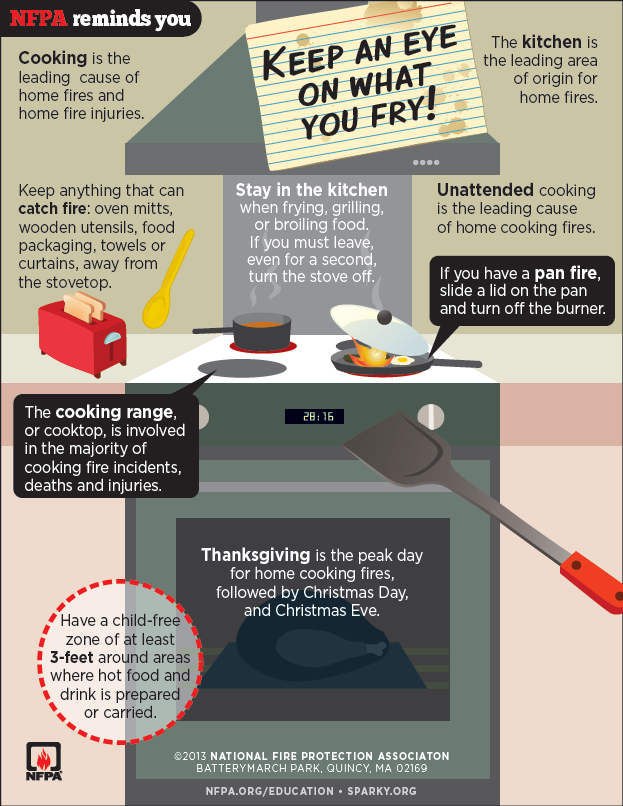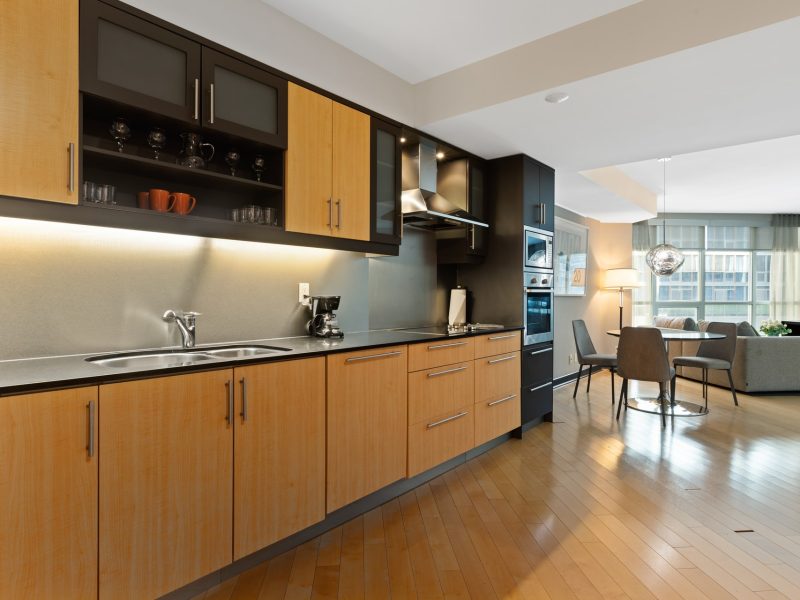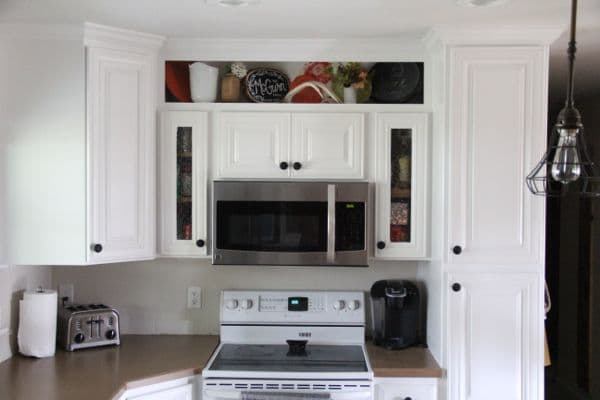Kitchen fires are one of the most common and dangerous types of fires in the home. They can cause devastating damage to property and injury or even death. Fortunately, there are steps you can take to prevent kitchen fires from happening in the first place. By understanding the causes of kitchen fires and taking the necessary preventative measures, you can help to ensure the safety of your family and home. This article will provide an overview of how to prevent kitchen fires and the steps you should take.

Importance of Fire Safety in the Kitchen
The kitchen is the hub of the home, but unfortunately, it is also the source of many house fires. Fire safety in the kitchen is of the utmost importance to make sure that your home remains safe and your family is out of harm’s way. Preventing kitchen fires requires taking proactive measures to reduce the risk of an accidental fire.
The first tip for fire safety in the kitchen is to never leave the stove unattended. Cooking can easily become a distraction, so it’s important to stay focused and alert when in the kitchen. Furthermore, it’s important to keep flammable objects away from the stove, such as kitchen towels, pot holders, and other items.
It is also important to keep the kitchen clean and free of grease build-up. Grease is highly flammable and can quickly ignite a kitchen fire if it is not properly cleaned up. Additionally, it’s important to regularly inspect kitchen appliances to make sure they are in proper working order. Outdated and malfunctioning appliances can easily trigger a kitchen fire.
Finally, it’s important to always have an up-to-date fire extinguisher in the kitchen. Fire extinguishers should be checked monthly to make sure they are in good working condition. It’s also important to be familiar with the instructions on how to use a fire extinguisher in the event of an emergency.
Fire safety in the kitchen is not something to take lightly. Taking the necessary precautions and following the tips listed above can drastically reduce the risk of a kitchen fire and keep your home and family safe.
Types of Kitchen Fires
Preventing kitchen fires is an important part of keeping your home safe. Knowing the different types of kitchen fires and their causes can help you identify potential risks and take steps to avoid them. Kitchen fires can be divided into three broad categories: grease fires, electrical fires, and appliance fires.
Grease fires are the most common type of kitchen fire and are caused by leaving cooking oil unattended or by leaving it on too high of a heat. These fires can start quickly and spread quickly, so it’s important to have a fire extinguisher or pot lid nearby. Electrical fires are caused by faulty wiring, overloaded outlets, or frayed cords. Appliance fires can be caused by malfunctioning appliances or by leaving them on for too long.
No matter the cause, all kitchen fires should be handled with caution. To prevent kitchen fires, make sure to never leave hot oil unattended, verify that all wiring is up to code, and unplug any appliances that are not in use. Additionally, make sure that your kitchen is well-ventilated and that all combustible items are kept away from heat sources. Taking the time to address potential risks can help you prevent kitchen fires and keep your home safe.
Common Causes of Kitchen Fires
Kitchen fires can be a devastating and dangerous experience. It is important to understand the common causes of kitchen fires so that you can take the necessary steps to prevent them. The most common causes of kitchen fires include: unattended cooking, faulty kitchen appliances, and grease build-up.
Unattended cooking is one of the leading causes of kitchen fires. It is important to stay in the kitchen while cooking and to keep a close eye on the food. It is also important to turn off the stove or oven when finished cooking.
Faulty kitchen appliances can increase the risk of kitchen fires. Regularly check and maintain kitchen appliances to ensure that they are functioning properly. Replace any faulty or broken appliances immediately and never use them.
Grease build-up is another common cause of kitchen fires. Grease can accumulate on the walls, floors, and other surfaces of the kitchen, so it is important to regularly clean and maintain a clean kitchen environment. Avoid leaving grease-soaked towels or rags near the stove or oven and keep the area around the stove free of clutter.
By understanding the common causes of kitchen fires, you can help prevent them from happening. Make sure to stay in the kitchen while cooking, check and maintain kitchen appliances, and keep the kitchen clean at all times. By taking these steps, you can help make your kitchen safer and reduce the risk of kitchen fires.
Preventative Measures
Preventing kitchen fires is an important step in protecting your home and family from the devastating effects of a fire. Taking preventative measures is key to ensuring that your kitchen is a safe place. One of the most effective ways to prevent kitchen fires is to keep flammable materials away from sources of heat. This includes removing potholders, kitchen towels, and other combustible materials away from the stove and oven. Additionally, utilizing an oven mitt, oven gloves, or cooking gloves when handling hot items can help to reduce the risk of a fire. Regularly cleaning the stovetop and range hood filters is also important in order to prevent a buildup of grease or fat that could contribute to a fire. Lastly, it is important to keep an eye on what is cooking and to never leave a stove unattended. Taking these preventative measures can help to ensure that your kitchen is a safe and fire-free environment.
Kitchen Fire Extinguisher Options
Fires in the kitchen are one of the most common causes of home fires and can be difficult to contain. That’s why it’s important to have the right fire extinguishing equipment in place to quickly put out any fires that may start. Kitchen fire extinguishers are an essential tool for putting out small kitchen fires, and there are a variety of extinguisher options to choose from.
Class K fire extinguishers are designed specifically for use on kitchen fires involving fats, oils, and grease. These extinguishers use a specialized foam or water-based solution that is designed to cool and smother the flames. For other types of kitchen fires, Class ABC extinguishers are a great choice. These extinguishers can be used on all three types of combustible materials: wood, paper, and fabric. They use a variety of extinguishing agents, such as dry chemical, foam, and carbon dioxide, to smother the flames.
It’s also important to consider the size of the kitchen fire extinguisher. Portable extinguishers are ideal for smaller kitchens, while larger kitchens may require a larger, wall-mounted unit. Additionally, it’s important to take into account the type of fire protection required. For instance, some kitchen fires may require a specialized fire suppression system, such as a wet chemical fire suppression system.
When selecting a kitchen fire extinguisher, it’s important to consider the type of fire, size of the kitchen, and type of fire protection. With the right fire extinguisher in place, you can quickly and effectively put out any kitchen fires that may start.
Proper Food Storage and Preparation
Having a well-organized kitchen and properly storing and preparing food can go a long way in preventing kitchen fires. Be sure to store all flammable materials away from heat sources like ovens and stoves. It’s also important to keep a clean kitchen by wiping up spills and grease immediately. When cooking, be sure to never leave the stove or oven unattended and be sure to turn off all appliances after use. When preparing food, use the proper cookware and utensils for the job, and never leave food cooking on the stove or in the oven unsupervised. Additionally, use only cooking oils that have a high smoke point and keep a fire extinguisher nearby when cooking. To prevent fire hazard, do not overload outlets and use only those that are UL-listed and grounded. Lastly, be sure to clean kitchen exhaust fans and stove hoods regularly to keep them clear of grease buildup. Following these tips will help ensure that you have a safe and fire-proof kitchen.
Kitchen Appliance Safety
Kitchen appliances are the most common cause of residential fires. Appliances such as microwaves, stoves, ovens, and toasters can all be potential sources of fire if not used correctly. To reduce the risk of fire, it is important to follow safety guidelines when using kitchen appliances.
Always make sure to read and follow the manufacturer’s instructions for proper use of any kitchen appliance. Make sure to keep any combustible materials such as paper towels, potholders, and other flammable items away from the appliance. It is also important to make sure that the appliance is not placed on or near anything that could catch fire.
Always unplug any kitchen appliance when it is not in use, and ensure that the cord does not touch any hot surfaces. Be sure to inspect the cord for any damage, as this can be a major source of kitchen fires. Replace any damaged cords immediately.
Never leave a kitchen appliance unattended when it is in use, and never leave food unattended while it is cooking. Always keep a fire extinguisher or baking soda nearby in case of an emergency. Additionally, make sure to clean your kitchen appliances regularly to help prevent grease buildup and reduce their fire risk. Following these safety tips can help to prevent kitchen fires.
Keeping the Kitchen Clean
No one likes cleaning the kitchen, but it’s an important part of keeping your family safe from kitchen fires. Grease, food, and other kitchen debris can accumulate on stovetops, ovens, and other cooking surfaces. These deposits can catch fire if they’re heated up enough, so it’s important to clean your kitchen regularly.
Start by wiping down surfaces after each use. Use a clean cloth or paper towel and a mild detergent to wipe away any grease or food that’s been left behind. Make sure to check the burners and ovens for any food particles that may have gotten stuck on them.
Also, consider using a deep cleaning service a few times a year to thoroughly clean your kitchen and remove any built-up grease and dirt. If you have a gas stove, it’s a good idea to get your stove serviced regularly to ensure that it’s operating correctly and that there are no leaks that could potentially spark a kitchen fire.
Finally, keep an eye out for any exposed wiring or faulty appliances that could cause a fire. If you notice anything that looks unsafe, be sure to get it checked out and replaced as soon as possible. Taking these steps to keep your kitchen clean and safe can go a long way towards preventing a kitchen fire.
Choosing the Right Cookware
Cooking is a great way to prepare delicious meals and spend quality time with family and friends. However, it is important to exercise caution when cooking, as kitchen fires are a common cause of residential fires. To help reduce your risk of having a kitchen fire, it is important to choose the right cookware.
Using cookware that is too small for the stovetop can lead to dangerous flare-ups and hot spots. Invest in cookware that is flameproof and fits the stovetop perfectly. Not only does this ensure proper heat distribution, it also helps to prevent dangerous flare-ups. Additionally, it is important to choose the right material when selecting cookware. Heavy-duty cookware such as cast iron or stainless steel is best for use on the stovetop.
It is also important to pay attention to the handles on your cookware. Avoid cookware with plastic or wooden handles, as these can melt or catch fire if exposed to high temperatures. Instead, choose cookware with cool-touch handles that will remain cool even when the cookware is hot.
Finally, always keep a fire extinguisher nearby when cooking and unplug any small electric appliances when not in use. Taking the proper precautions can help to prevent kitchen fires and keep your family safe.
Understanding Types of Cooking Oils
Cooking with oil can be a great way to make delicious meals, but it can also be dangerous if not done correctly. There are many types of cooking oils available, and each one has its own properties and safety considerations. Understanding the different types of cooking oils and how to use them safely can help prevent kitchen fires.
When cooking with oils, the first consideration is smoke point. The smoke point of an oil is the temperature at which it starts to smoke and degrade. Oils with high smoke points, such as avocado oil, almond oil, and canola oil, are best for high-heat cooking. Oils with lower smoke points, such as extra-virgin olive oil, are better suited for low-heat cooking.
It’s also important to understand the difference between refined and unrefined oil. Unrefined oils are typically more flavorful and have a higher smoke point, but they also burn more easily. Refined oils are less flavorful, but they are more stable and less likely to cause fires.
Finally, it’s important to keep in mind that some oils, such as butter, may contain high levels of saturated fat. These oils can be dangerous when heated and can cause flare-ups and fires.
By understanding the different types of cooking oils and what makes them safe or hazardous, you can prevent kitchen fires and keep your family safe.
Knowing When to Call the Fire Department
When it comes to preventing kitchen fires, knowing when to call the fire department is just as important as taking proactive steps to prevent them from occurring. If you’re unsure whether you should call the fire department, consider the following criteria: If you see smoke coming from your kitchen, if your kitchen fire alarms sound, or if you observe a fire itself, don’t hesitate to call 911. Even if the fire appears to be small, it’s best to call the fire department just to be safe. If the fire is in a contained area, you might be able to put it out with a fire extinguisher – but if you’re unable to do so, it’s time to call the fire department. When you call, provide information about the size and type of fire, and provide the address and any other special instructions. Firefighters have the specialized knowledge and equipment to ensure that the fire is extinguished quickly and safely. In addition to calling the fire department, it’s important to remember to stay calm and keep your family safe. If possible, evacuate the house and don’t re-enter until you are given the all-clear by the fire department.
FAQs About the How To Prevent Kitchen Fires
1. What are the best ways to prevent kitchen fires?
A: The best way to prevent kitchen fires is to keep flammable materials away from heat sources, such as stoves and ovens. Additionally, it’s important to unplug small kitchen appliances when not in use, and to keep a fire extinguisher nearby in case of emergency.
2. How can I ensure that my kitchen is safe from fire?
A: The most important step you can take is to make sure that your kitchen is kept tidy and free of clutter. Always make sure to keep flammable items such as potholders, paper towels, and dish towels away from the stovetop and oven. Additionally, always keep an eye on the stovetop when cooking, in order to avoid leaving anything unattended and creating a potential fire hazard.
3. What safety measures should I take when using my oven?
A: When using an oven, always make sure that it is in good working condition, as any malfunctioning parts could potentially cause a fire. Additionally, never leave the oven unattended when it is in use, and use the appropriate settings for the type of food you are cooking.
4. What should I do if a kitchen fire starts?
A: If a kitchen fire starts, the most important thing to do is to make sure that everyone in the area is safe and away from the fire. If you have a fire extinguisher, use it to put out the fire. If not, call the fire department for assistance.
5. What should I do if I am cooking with grease and a fire starts?
A: If a grease fire starts, the best thing to do is to turn off the heat source, cover the fire with a lid, and don’t try to move the pan. Additionally, never pour water on a grease fire as this can spread the grease and cause the fire to flare up.
Conclusion
Kitchen fires are a serious threat to any home, so it is important to take the necessary steps to prevent them from happening. Make sure all combustibles such as towels, dishcloths, pot holders, oven mitts, and curtains are kept away from the stovetop. Always keep a fire extinguisher nearby in case of an emergency. Also, regular maintenance of your gas stove, oven, and range hood is essential to keep them in proper working order. Finally, if you have an electric stove, make sure to unplug it when not in use. Following these simple steps can ensure that your kitchen is a safe place to cook and enjoy meals.


